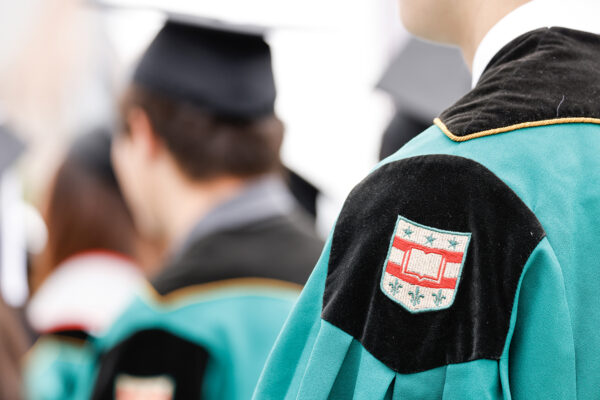Washington University in St. Louis will remove the name of Robert J. Terry, MD, from all university features, including the Robert J. Terry Lecture Series and the Robert J. Terry Professorship at the School of Medicine. This action follows a comprehensive review by the university’s Naming Review Board (NRB) and recommendations unanimously endorsed by the WashU Board of Trustees.
The review was initiated in response to a formal request submitted in fall 2024 and co-signed by 12 students. The submission, later joined by the Washington University Native American Students Association, called for the removal of Terry’s name based on his active promotion of eugenics and his collection of human remains without consent, practices that disproportionately impacted African Americans. Terry, who died in 1966, was a leader in the anatomy department at WashU Medicine.
“This is about more than a name change,” said Paul Scott, a senior double majoring in global studies and in East Asian languages and cultures, both in Arts & Sciences. Scott was a leader in preparing the submission. “It’s about acknowledging the real harms that were done — and that continue when we fail to confront them — and committing to do better moving forward.”
Following a detailed and rigorous examination of historical records — including over 3,000 pages of archival material — the NRB determined that Terry’s actions were fundamentally inconsistent with the university’s values of equity, inclusion and respect for human dignity.
In accepting the NRB’s recommendations, Chancellor Andrew D. Martin emphasized the importance of confronting the university’s history with transparency and care.
“At WashU, we are committed to confronting the difficult aspects of our institutional history with honesty, rigor and care,” Martin said. “After a thorough and thoughtful review, we believe removing Robert Terry’s name from university features is necessary and appropriate. This decision is consistent with our core mission to foster an inclusive, respectful and forward-looking academic community.”
The NRB’s final report, which is available in full online, outlined two principal recommendations: first, to remove the Terry name from all university features where there is no legal impediment, while establishing a thoughtful and inclusive renaming process; and second, to create educational opportunities that contextualize the decision and encourage deeper engagement with the historical and ethical issues raised by Terry’s legacy.
In addition to these steps, the university will continue efforts already underway to develop and implement a process for the ethical handling of the Terry specimen collection, a collection of human bones and tissue samples that Terry acquired mainly from local hospitals and institutional morgues in the St. Louis area and that were used in the past for research and teaching purposes.
A moment of institutional growth
The decision to remove Terry’s name from university features marks a significant moment in WashU’s ongoing efforts to align its practices and honors with its institutional values. The NRB’s work allows the university to engage deeply with its past, respond thoughtfully to evidence and advocacy, and reaffirm its commitment to fostering a more inclusive and equitable community.
“Our task was not to erase history, but to confront it honestly,” said Peter Kastor, the Samuel K. Eddy Professor in history and associate vice dean of research in Arts & Sciences and chair of the NRB. “In reviewing the legacy of Robert J. Terry, we sought to ensure that the university’s named honors reflect our community’s values. By engaging in thorough research and careful deliberation, we aimed not only to reach a fair conclusion, but also to affirm that we must acknowledge, understand and learn from the past.”


